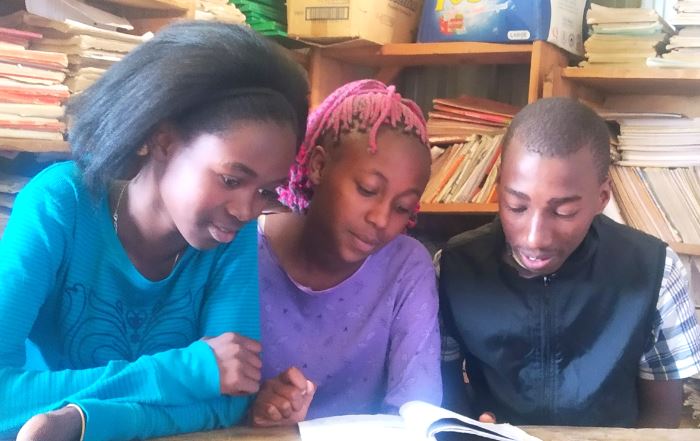×
The Standard e-Paper
Stay Informed, Even Offline

From Left: Valery Wendy Achesa, Miriam Nyambura and Edwin Amani pupils at Bridge Academy –Kabiria slum. [Courtesy]
As the world celebrates the International Day of the Girl Child under the theme, “My voice, Our equal future,” let’s seize the opportunity to reimagine a better world inspired by adolescent girls – energized and recognized, counted and invested in.